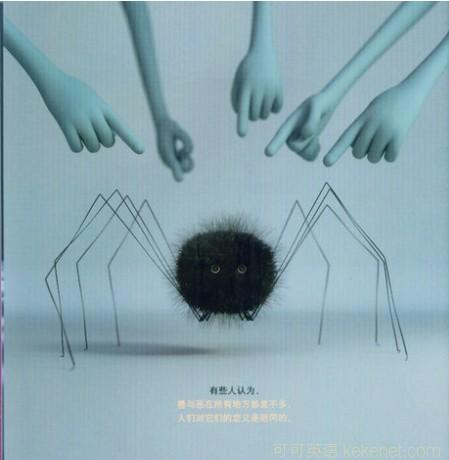
Science and Technolgy
科技
The history of AIDS
艾滋病的歷史
Heroes and villains
英雄與狗熊
The story of AIDS involves many larger-than-life characters, good and bad
艾滋病的故事造就了眾多的傳奇人物,也展示了人性的善與惡
ANNIVERSARIES are times for reflection, and this one should be no exception, for the 30-year history of AIDS is a mirror in which humanity can examine itself.
周年紀念是緬懷沉思的時刻,這一次也不該例外。30年的艾滋病歷史成為檢視人性自身的明鏡。
From questionable scientists to philanthropic billionaires, people's actions against AIDS, and reactions to it, have shown up the best and worst that humans have to offer.
從道德缺失的科學(xué)家到樂善好施的億萬富翁,人們對抗艾滋病的行動及反應(yīng)已經(jīng)展示出人類最光明與最陰暗的一面。
Such dualism was there from the beginning, in the question of who discovered the AIDS-causing virus.
這種雙重性一開始就存在于誰才是艾滋病致病病毒發(fā)現(xiàn)者的問題中。
There were two claimants. One, Robert Gallo, is American. The other, Luc Montagnier, is French.
兩名科學(xué)家宣稱自己發(fā)現(xiàn)了艾滋病病毒,一名是美國人羅伯特?蓋勒,另一名是法國人呂克?蒙塔尼(Luc Montagnier)。
Dr Gallo called his discovery HTLV-3. Dr Montagnier called his LAV.
前者將病毒命名為HTLV-3,后者命名為LAV,事實上兩者是同一種病毒。
They were in fact the same thing. It turned out, however, that Dr Gallo's virus had come from Dr Montagnier's laboratory.
然而事實證明蓋勒博士的病毒樣本來源于蒙塔尼實驗室,但為什么會這樣卻始終未得到證實,但受指責的也許是那例受感染的病毒樣本。
It was never conclusively proved how, though a contaminated sample may have been to blame. And Dr Gallo was exonerated of any wrongdoing by an official investigation and is universally recognised to have done important work on AIDS.
官方調(diào)查機構(gòu)證實蓋勒博士未有任何不誠實行為,人們也普遍承認他為艾滋病做出了重要的工作。
But only Dr Montagnier won the Nobel prize-eloquent testimony to some people's opinion of the whole affair.
但最終只有呂克?蒙塔尼(Luc Montagnier)獲得了諾貝爾獎—充分說明了一些人的言論對整件事情的影響。
Another source of conflict was whether HIV, as the virus eventually came to be known, was truly the cause of AIDS.
另一個爭執(zhí)點是:在HIV病毒逐漸被公眾熟知后,人們開始質(zhì)疑HIV病毒是否真的是導(dǎo)致艾滋病的病因。
At the beginning of the epidemic, that might have been debatable.
在艾滋病流行初期,這一點可能一直存在爭議。
Perhaps HIV was merely a passenger that took advantage of an immune system weakened by another cause?
或許HIV病毒只是趁機搭載在了被其它原因損害的免疫系統(tǒng)上。
One once-respected scientist, Peter Duesberg, who did early research on viral causes of cancer, would not drop the idea.
彼得·迪斯貝格(Peter Duesberg)早期曾做過病毒致癌的研究,這位曾備受尊敬的科學(xué)家就不愿意放棄這種觀點。
He insisted-and still insists-that the weakening of the immune system characteristic of AIDS is caused by drug-taking (he blames both recreational drugs and AZT, one of the early anti-AIDS drugs), and that HIV is, indeed, a passenger.
無論過去和現(xiàn)在他都堅持認為具有艾滋病特征的免疫系統(tǒng)弱化是由于吸毒引起(他指責軟性毒品和AZT(早期抗艾滋病藥物之一)),認為HIV確實只是個搭載病毒。
This theory would not have mattered much except that Thabo Mbeki, a former president of South Africa, latched on to it.
這種理論并不太會引起什么重視,只有南非前總統(tǒng)塔博·姆貝基(Thabo Mbeki)才熱衷于相信它。
Since South Africa has the world's largest number of AIDS cases, and one of its highest infection rates, this was bad news, as was Mr Mbeki's health minister, Manto Tshabalala-Msimang, who was appointed mainly because she agreed with him, and recommended beetroot and garlic as treatment for the disease.
南非是全世界擁有艾滋病患者最多國家,也是該病最高傳染率國家之一,這是個壞消息。同樣的壞消息還有塔博·姆貝基(Thabo Mbeki)任命Manto Tshabalala-Msimang為衛(wèi)生部長,主要原因是由于在艾滋病問題上她贊同了他的觀點,在治療艾滋病上,Manto Tshabalala-Msimang建議患者應(yīng)該食用甜菜根和大蒜。
Only with the election of Jacob Zuma, who has himself been publicly tested for HIV (he did not have it), did South Africa return to sensible anti-AIDS policies.
直到祖馬當選總統(tǒng)之后,他公開為自己的身體做HIV檢查(沒檢查出有HIV病毒),南非的抵抗艾滋病政策才轉(zhuǎn)向明智。
Among the heroes, Bill Gates looms large.
在抗擊艾滋病的英雄中,比爾·蓋茨是最貢獻突出的一位。
The foundation into which he poured much of his Microsoft fortune took AIDS seriously from the beginning, forming a particularly fruitful partnership with the government of Botswana, one of the worst-affected countries.
他起初就對艾滋病十分重視,創(chuàng)立了艾滋病基金,并將微軟財富大量注入其中,與艾滋病重災(zāi)國家之一的博茨瓦納政府形成了卓有成效的合作。
And Nelson Mandela, the heroes' hero, also cleaved eventually to the path of righteousness, even while admitting he had not done enough to combat AIDS during his own presidency of South Africa.
納爾遜·曼德拉(Nelson Mandela)可謂是英雄中的英雄,他始終堅守正義之路,甚至承認在任職南非總統(tǒng)期間自己在對抗艾滋病方面的工作還做的不夠。
Mr Gates and Mr Mandela are easy to admire.
蓋茨和曼德拉是容易讓人們尊敬的英雄。
One hero that many AIDS activists have difficulty accepting, though, is George Bush junior.
但另一名英雄小布什卻讓許多艾滋病活動人士難于接受。
Activists do not much like born-again Christians, who take a dim view of the sort of sex lives that help to spread HIV.
他們不太喜歡他這樣的重生的基督徒,因為重生基督徒不贊成性生活能幫助HIV病毒進行傳播。
But Mr Bush was responsible for setting up the President's Emergency Plan For AIDS Relief (PEPFAR) and for making sure it had plenty of money.
但是布什的功績是制定了總統(tǒng)防治艾滋病緊急救援計劃(PEPFAR)并保證它有足夠的資金支持。
PEPFAR is one of the two main organisations, along with the Global Fund, that dish out the cash that rich countries give poor ones to combat AIDS.
PEPFAR是全球兩大主要基金組織之一,它與全球基金(Global Fund)一道將發(fā)達國家的大量資金撥調(diào)給貧窮國家以對抗艾滋病。
Last year, it spent almost $7 billion on AIDS and the tuberculosis that often accompanies it, and it is responsible for helping half of the 6.6m people now on anti-retroviral drugs.
去年,PEPFAR用于治療艾滋病及其常伴結(jié)核病的資金就達70多億美元,現(xiàn)在它負責資助330萬艾滋病患者服用抗轉(zhuǎn)錄病毒藥物。
Many activists may be reluctant to give Mr Bush credit.
也許眾多艾滋病活動人士不愿意給小布什任何贊譽。
But handsome is as handsome does.
但英雄終歸是英雄。



